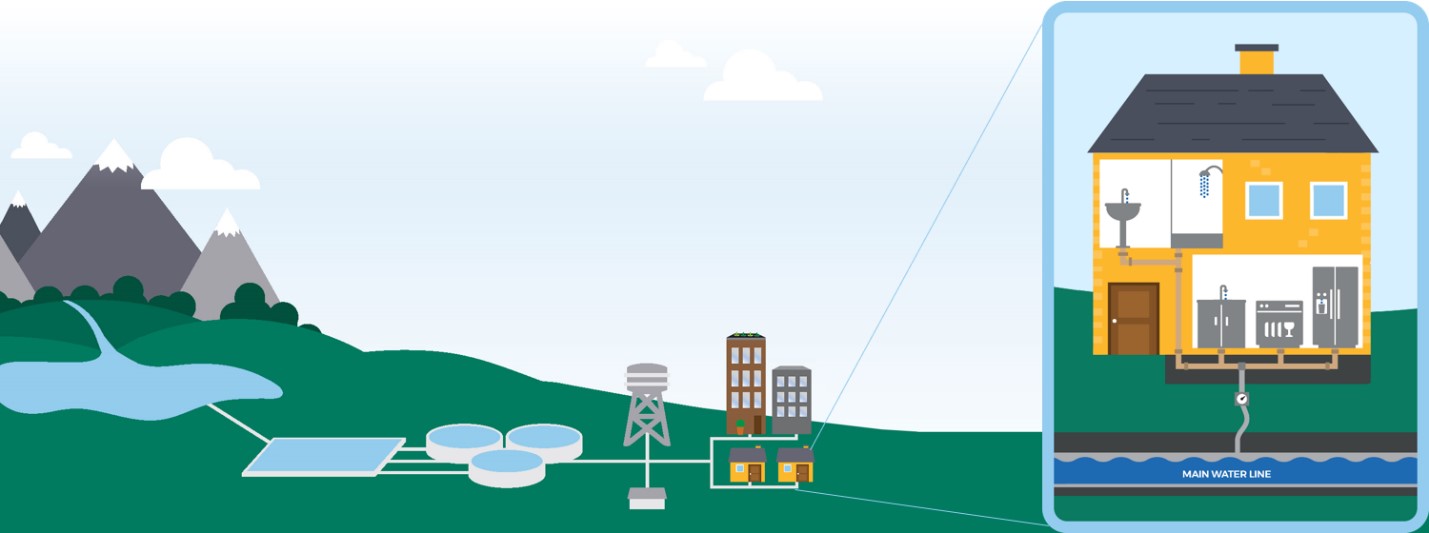Premise Plumbing Decontamination

Premise plumbing is defined as the portion of a water system, including both hot and cold water, various devices (e.g., hot water heater, HVAC humidifier), fixtures (e.g., showers, faucets), and drains (e.g., sinks, toilets) connected to the main distribution system via service lines. Water quality within premise plumbing systems is not monitored by EPA regulations, except for the Lead and Copper Rule. Nonetheless, these systems can be a major source for human exposure to chemicals, radionuclides, and microorganisms in drinking water and wastewater via inhalation, ingestion, aspiration, and wound infections. Presence of opportunistic pathogens in premise plumbing systems has been well-established and can be found in either suspended forms (e.g., aerosolized water droplets) or within biofilms. Chemicals and radionuclides can contaminate premise plumbing, causing the system to act as a reservoir for their continual release into the water, potentially leading to acute or long-term exposure.
Limited research has been conducted to assist home and building owners with remediation of contaminated water systems and maintenance of drinking water quality. Thus, to fill those knowledge gaps, EPA conducts research to:
- understand the contaminant fate and transport enabling their persistence in these systems;
- evaluate various decontamination technologies to remove contaminants in distributed water and within biofilms, the biologically active layers that form on plumbing surfaces; and
- determine the effect of chemical and microbial water quality parameters on contaminant persistence within premise plumbing systems as well as the distribution system.
Research Areas
Research Products
- Journal Article: Legionella Diversity and Spatiotemporal Variation in the Occurrence of Opportunistic Pathogens within a Large Building Water System
- Journal Article: Chlorine and monochloramine disinfection of Legionella pneumophila colonizing copper and PVC drinking water biofilms
- Journal Article: Preferential colonization and release of Legionella pneumophila from mature drinking water biofilms grown on copper versus unplasticized polyvinylchloride coupons
- Journal Article: Electrophoretic mobility of Legionella pneumophila serogroups 1 to 14
